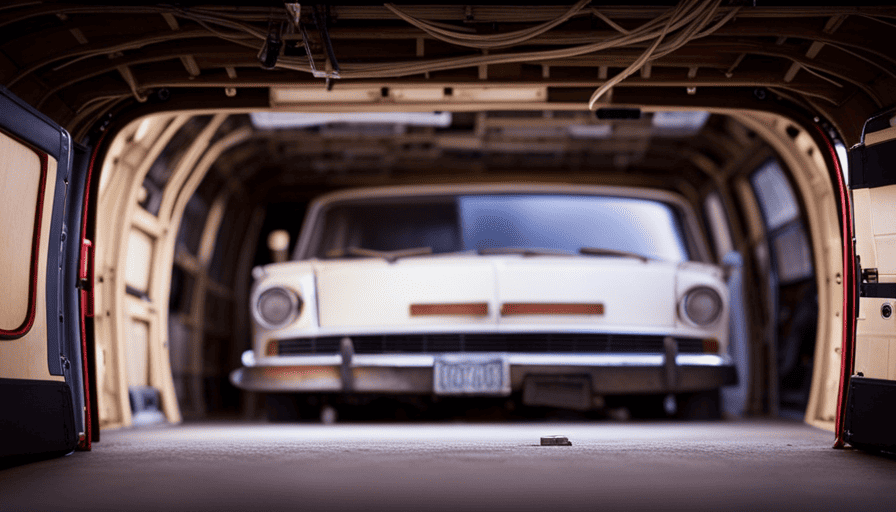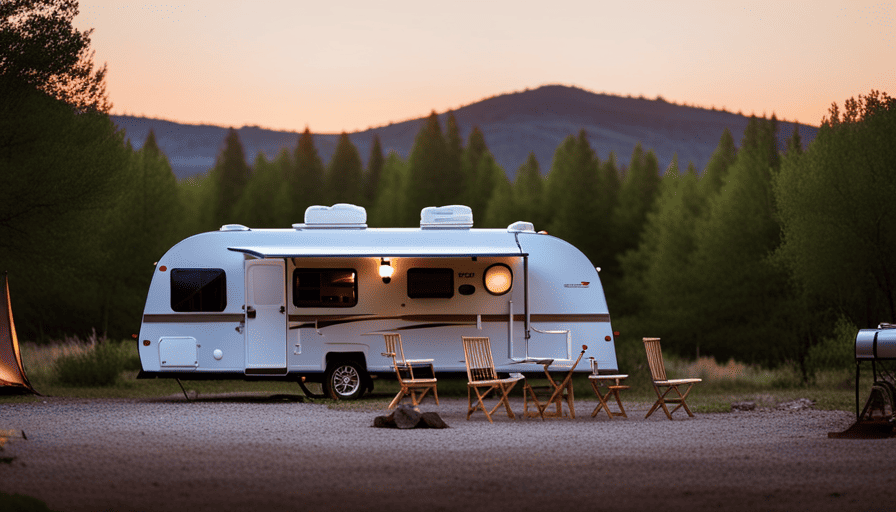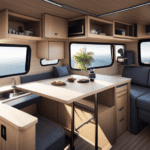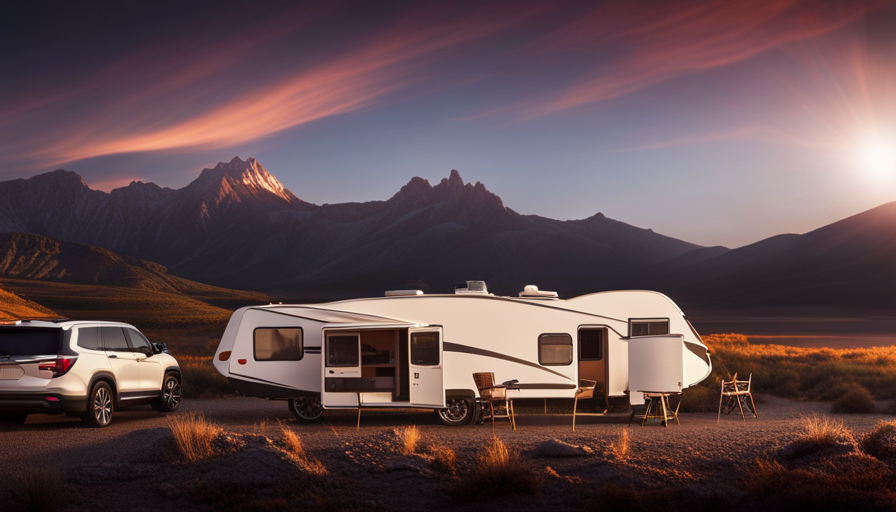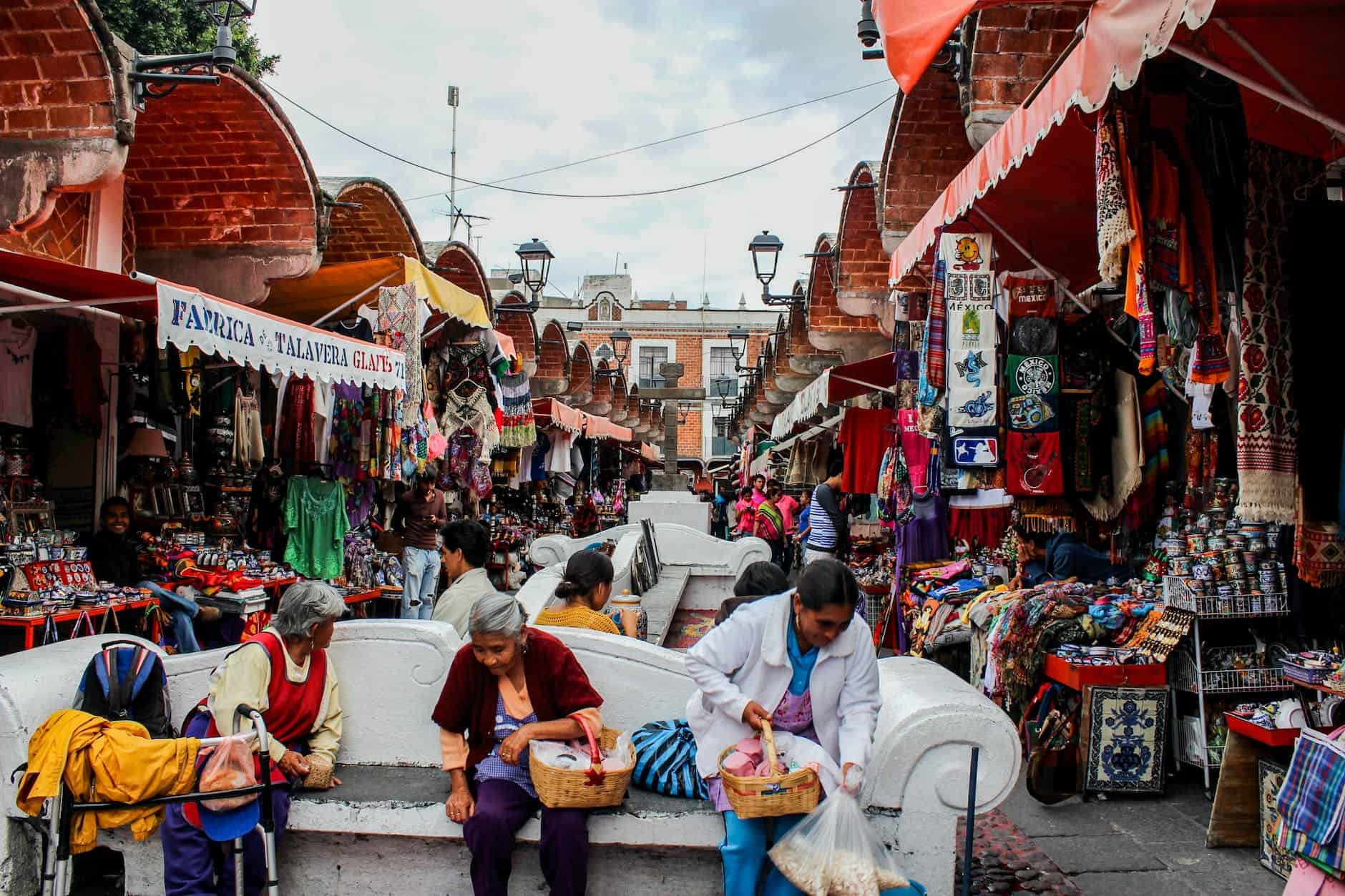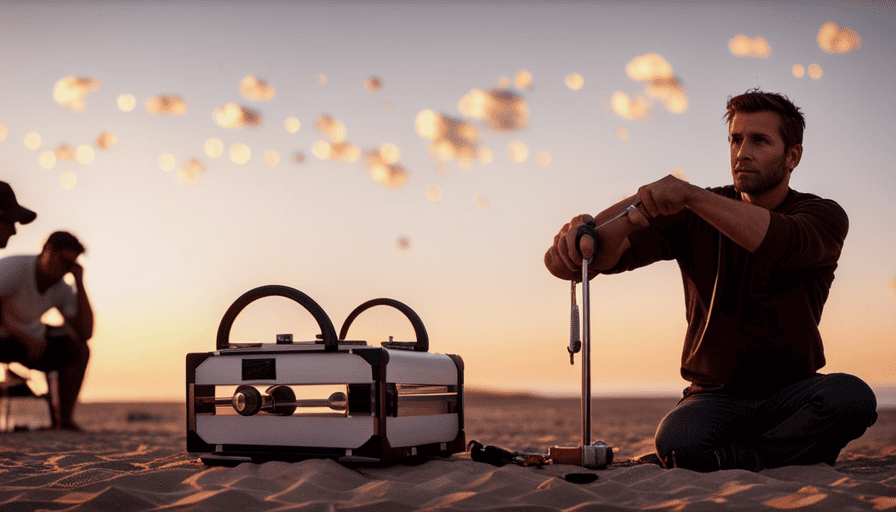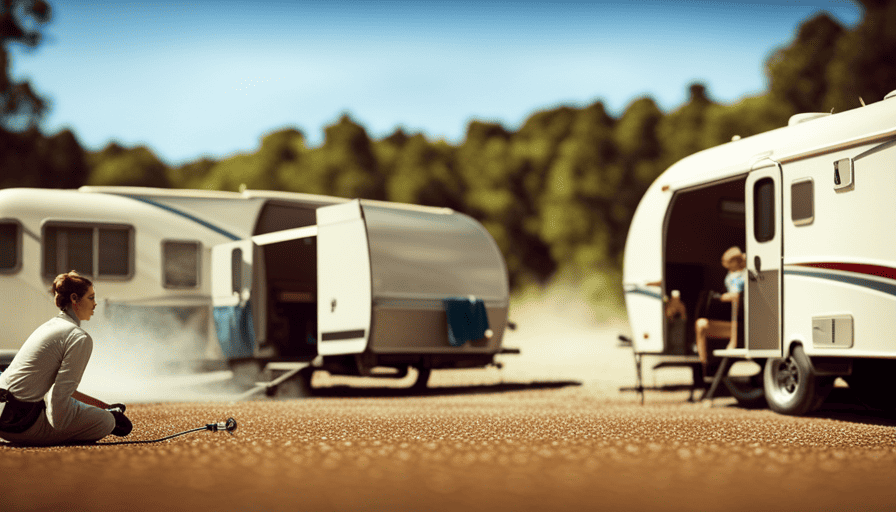The saying “Home is where you park it” holds true, especially when converting a van into a mobile home. But, before embarking on this exciting journey, it’s important to understand the financial implications involved.
In this article, I will provide you with a comprehensive breakdown of how much it really costs to convert a van into a camper.
First things first, you’ll need to research van options and prices to find the perfect vehicle for your conversion project. Then, set a budget for the conversion itself, considering factors like essential components and additional costs. You’ll also need to decide whether to tackle the conversion as a DIY project or hire professionals.
To keep costs down, it’s important to shop for affordable materials and equipment while planning for unexpected expenses. Seeking advice from experienced van conversion enthusiasts can also provide valuable insights.
So, if you’re ready to hit the road and embrace the nomadic lifestyle, let’s dive into the world of van conversions and discover the true cost of transforming a van into your dream camper.
Key Takeaways
- Van conversions into campers are a popular way to have a home on wheels.
- The cost of hiring professional van conversion services can range from $10,000 to $50,000 or more.
- Additional costs to consider include insurance, registration, vehicle maintenance, camping gear, and campground fees.
- DIY conversions are cost-effective but time-consuming, while hiring professionals ensures expertise and saves time.
Research Van Options and Prices
When researching van options and prices, it’s like diving into a sea of possibilities and budgets, each vehicle representing a unique wave of potential. To compare different van models for camper conversions, I started by looking at popular options like the Mercedes Sprinter, Ford Transit, and Ram Promaster.
These vans are known for their spacious interiors and customizable features, making them ideal candidates for conversions.
Next, I delved into the cost of hiring professional van conversion services. While some people choose to convert their vans themselves, others prefer to leave it to the experts. I found that the cost of hiring professionals can vary depending on the complexity of the conversion and the level of customization desired. On average, conversion services can range from $10,000 to $50,000 or more.
With all this information in mind, I began to set a budget for my van conversion project. By comparing van models and researching conversion costs, I was able to get a better understanding of the expenses involved. Setting a budget allowed me to move forward with confidence, knowing exactly how much I was willing to spend on my dream camper van.
Set a Budget for the Van Conversion Project
To set a budget for your van conversion project, you’ll want to consider factors like the materials, labor, and customization options you’re looking for.
Calculate labor costs by determining how much work you’ll be able to do yourself versus what will require professional assistance. Keep in mind that labor costs can vary depending on your location and the complexity of the project.
Consider resale value when choosing customization options, as some upgrades may increase the value of your camper van if you decide to sell it in the future.
When setting your budget, it’s important to prioritize your needs and wants. Create a list of essential components that you’ll need for your camper van, such as insulation, electrical system, and flooring. Research the prices of these items to get an idea of how much they will cost.
Additionally, think about any additional features or upgrades you’d like to include, such as a solar panel system or a built-in kitchenette.
By considering these factors and creating a detailed budget, you’ll be able to better plan and estimate the costs of your van conversion project.
Next, we’ll dive into how to calculate the costs of essential components for your camper van.
Calculate the Costs of Essential Components
Calculating the costs of essential components for your camper van is like unraveling a puzzle to determine the financial puzzle pieces needed for your project.
One of the major costs to consider is labor. If you plan to hire professionals to help with the conversion, you’ll need to factor in their hourly rates or project fees. Keep in mind that the complexity of the conversion and the expertise of the professionals will affect the overall cost.
Additionally, don’t forget to calculate the costs of maintenance. Your camper van will require regular upkeep to ensure its longevity and functionality. This includes costs for routine inspections, oil changes, tire rotations, and any repairs that may be needed along the way.
To get a more accurate estimate of these costs, it’s a good idea to reach out to local mechanics or conversion specialists to get quotes. They can provide insights into the specific maintenance needs of your van and help you budget accordingly.
Once you have a clear understanding of the costs of labor and maintenance, you’ll be better prepared to consider additional costs, such as insurance, campground fees, and fuel expenses, which will be covered in the next section.
Consider Additional Costs
Don’t overlook the extra expenses that come with transforming your van into a cozy home on wheels! While calculating the costs of essential components is important, there are additional expenses that can add up quickly. These hidden costs can catch you off guard if you’re not prepared.
To give you a better idea of what to expect, let’s take a look at a breakdown of potential additional costs:
| Additional Costs | Description | Estimated Cost |
|---|---|---|
| Insurance | Adequate coverage for your converted camper van | $500 – $1,000 |
| Registration | Updating your vehicle’s registration and plates | $100 – $200 |
| Vehicle Maintenance | Regular upkeep and repairs to keep your van in good shape | $500 – $1,000 |
| Camping Gear | Basic equipment like bedding, cookware, and portable toilet | $500 – $1,000 |
| Campground Fees | Costs for staying overnight at campsites or RV parks | $20 – $60 per night |
These additional costs can vary depending on your location, specific needs, and preferences. It’s essential to budget for these expenses to ensure you have a realistic idea of the overall cost of your van conversion.
Now that you’re aware of these additional expenses, let’s transition into the next section where we’ll discuss whether a DIY or professional conversion is right for you.
Determine if DIY or Professional Conversion is Right for You
Considering whether to tackle a DIY conversion or hire a professional can be a tough decision, but it ultimately depends on your skills, time availability, and budget. For instance, Sarah, a busy working professional with limited carpentry experience, decided to hire a professional to convert her van into a camper to ensure a high-quality and efficient result.
If you’re considering a DIY van conversion, here are some pros and cons to keep in mind:
-
Cost: DIY conversions tend to be more cost-effective since you can choose budget-friendly materials and do the work yourself.
-
Customization: DIY allows for complete customization, giving you the freedom to design your camper exactly how you want it.
-
Learning experience: A DIY conversion can be a great opportunity to learn new skills and gain a sense of accomplishment.
-
Time and effort: DIY conversions can be time-consuming and require a significant amount of effort, especially if you have limited experience.
On the other hand, hiring a professional comes with its own benefits:
-
Expertise: Professionals have the knowledge and experience to ensure a high-quality conversion.
-
Time-saving: Hiring a professional can save you time and effort, as they have the necessary tools and skills to complete the conversion efficiently.
-
Warranty: Professional conversions often come with warranties, providing peace of mind.
-
Limited involvement: Hiring a professional allows you to focus on other tasks while they handle the conversion.
Considering the pros and cons, it’s important to weigh your options before making a decision. Once you’ve determined whether DIY or professional conversion is right for you, the next step is to explore financing options.
Explore Financing Options
After considering whether a DIY or professional conversion is the right choice for you, it’s time to explore financing options for your van conversion project.
Converting a van into a camper can be a significant investment, so it’s essential to find affordable loan options that suit your budget.
One way to finance your van conversion is through personal loans. Many financial institutions offer these loans with reasonable interest rates, and they can provide you with the funds needed to cover the costs of materials, equipment, and labor if you choose to hire professionals. Additionally, some lenders specialize in loans specifically for van conversions, which may offer more favorable terms and rates.
Another option to consider is securing a line of credit or using a home equity loan if you own property. These options can provide you with a higher borrowing limit and potentially lower interest rates.
It’s crucial to explore different financing alternatives and compare offers from various lenders to find the best option for your specific needs. By finding affordable loan options, you can ensure that your van conversion project remains within your financial means.
Transitioning into the next section, once you have secured financing, the next step is to shop for affordable materials and equipment.
Shop for Affordable Materials and Equipment
Looking for budget-friendly options? Get ready to score great deals on materials and equipment for your van conversion project.
When it comes to finding affordable suppliers, doing some research can go a long way. Look for local hardware stores, salvage yards, and online marketplaces that offer discounted prices on items such as insulation, flooring, cabinets, and appliances. Don’t forget to check out camping and RV supply stores as well, as they often have sales and clearance sections where you can find affordable camping gear and accessories.
Another factor to consider when trying to keep costs down is whether to opt for a DIY installation or hire professionals. While hiring professionals may seem like the easier option, it can also be more expensive. DIY installation allows you to save money on labor costs, but it does require more time, effort, and skill. If you’re confident in your abilities and have the necessary tools, doing the installation yourself can be a cost-effective choice.
As you shop for affordable materials and equipment, keep in mind that unexpected expenses can arise during the conversion process. It’s important to plan for these unforeseen costs and set aside a contingency budget.
In the next section, we’ll discuss how to effectively plan for these unexpected expenses without breaking the bank.
Plan for Unexpected Expenses
After shopping for affordable materials and equipment for your van conversion, it’s important to also plan for unexpected expenses that may arise during the process. Converting a van into a camper can be a complex project, and it’s not uncommon for unexpected challenges to come up along the way. These challenges could range from finding hidden damage in the van that needs to be repaired, to encountering unforeseen technical issues during the conversion process.
To manage these unexpected expenses, it’s crucial to have a contingency fund set aside. This fund should be separate from your initial budget and should account for any additional costs that may arise. It’s also a good idea to research common challenges that other van conversion enthusiasts have faced, and to learn from their experiences. This can help you anticipate potential issues and plan accordingly.
By planning for unexpected expenses and having a contingency fund, you’ll be better prepared to handle any challenges that may come your way during the van conversion process.
In the next section, we will explore how seeking advice from experienced van conversion enthusiasts can provide valuable insights and guidance.
Seek Advice from Experienced Van Conversion Enthusiasts
To gain valuable insights and guidance, it would be wise to seek advice from experienced van conversion enthusiasts. These individuals have gone through the process of converting a van into a camper and can offer helpful tips and recommendations. They can provide advice on van conversion design, such as maximizing storage space and creating a functional layout. Additionally, they can share their experiences with different insulation materials, helping you choose the best options for your camper van.
To make it easier for you to understand, here is a table summarizing some van conversion design tips and the best insulation materials for camper vans:
| Van Conversion Design Tips | Best Insulation Materials for Camper Vans |
|---|---|
| Maximize storage space | Polyisocyanurate foam board |
| Create a functional layout | Spray foam insulation |
| Install durable flooring | Fiberglass insulation |
| Incorporate a comfortable bed | Reflectix insulation |
| Consider solar power for electricity | Sheep’s wool insulation |
By seeking advice from experienced van conversion enthusiasts, you can tap into their knowledge and expertise to make informed decisions for your own camper van conversion. With their guidance, you can create a comfortable and efficient living space that suits your nomadic lifestyle. Enjoy your nomadic adventures in your converted camper van!
Enjoy Your Nomadic Lifestyle in Your Converted Camper Van!
Now that you’ve transformed your van into a cozy and functional camper, it’s time to fully embrace the nomadic lifestyle and embark on unforgettable adventures! But before you hit the road, there are a few things you should consider to ensure a comfortable and enjoyable experience.
First and foremost, make sure you have all the van life essentials. These are the must-have items that will make your camper van feel like a home away from home. Invest in a comfortable mattress or sleeping pad to get a good night’s sleep. A portable stove and cookware will allow you to prepare delicious meals on the go. Don’t forget about storage solutions to keep your belongings organized, as well as solar panels or a generator for electricity.
When it comes to finding the best camping spots, research is key. Use online resources, such as camping apps or websites, to discover hidden gems and popular campgrounds. Look for places with beautiful scenery, access to amenities like showers and toilets, and a friendly community of fellow campers.
Additionally, don’t be afraid to venture off the beaten path and explore lesser-known areas. Sometimes the best camping spots are the ones that are off the grid and away from the crowds.
So, pack your bags, grab a map, and get ready to embark on an incredible journey in your converted camper van. With the right essentials and a sense of adventure, the nomadic lifestyle awaits you!
Frequently Asked Questions
What are some common challenges people face when converting a van into a camper?
When converting a van into a camper, common mistakes can be costly. It’s crucial to plan and research thoroughly to avoid these challenges.
One of the most vital aspects is choosing the best insulation. Proper insulation helps regulate temperature, reduces noise, and improves energy efficiency. Ignoring this can result in discomfort and higher energy costs.
So, take the time to learn about different insulation options and consult experts to ensure a successful van conversion.
Are there any legal requirements or permits needed for converting a van into a camper?
Permit requirements and legal restrictions vary depending on the location. It’s important to research and comply with local laws and regulations when converting a van into a camper. Some areas may require permits for modifications to the vehicle’s structure, electrical systems, or plumbing.
Additionally, there might be specific safety and environmental standards to meet. It’s advisable to consult with local authorities or seek professional guidance to ensure compliance with all necessary legal requirements.
How long does the conversion process usually take?
The conversion timeline for a van into a camper can vary depending on several factors. These factors include the complexity of the conversion, the availability of parts and materials, and the skill level and experience of the person doing the conversion.
On average, a basic van to camper conversion can take anywhere from a few weeks to a few months. More intricate and custom conversions may take even longer. It’s important to plan accordingly and allow for potential delays during the conversion process.
What are some important safety considerations to keep in mind during the conversion?
When converting a van into a camper, it’s crucial to prioritize safety. Some important considerations include ensuring proper ventilation, installing carbon monoxide detectors, and using fire-resistant materials.
Additionally, it’s essential to secure all fixtures and furniture to prevent them from shifting during travel. When it comes to materials, using sturdy and durable options like plywood, aluminum, and fire-retardant insulation can help enhance safety and longevity.
Can I still use my converted camper van as a regular vehicle for everyday use?
Yes, you can definitely use your converted camper van for everyday use and commuting. It provides the flexibility of a regular vehicle while also offering the convenience of a home on wheels. However, it’s important to consider the maintenance aspect. Regularly servicing your van, checking the tires, fluids, and electrical systems, will ensure its longevity and reliability.
One interesting statistic is that 70% of people who convert a van into a camper use it as their primary vehicle for daily transportation.
What Are the Hidden Costs of Converting a Van into a Camper?
When converting a van into a camper, the cost of camper van build can quickly add up. Beyond the initial purchase and renovation expenses, there are hidden costs such as insurance, maintenance, and campground fees. Additionally, unforeseen repairs and upgrades may arise, impacting the overall cost of the project.
Conclusion
After researching van options and prices, setting a budget, and calculating the costs of essential components, I can confidently say that converting a van into a camper is worth every penny. It’s like turning a blank canvas into a masterpiece, where every detail is carefully crafted to create a nomadic lifestyle full of freedom and adventure.
So, if you’re ready to hit the road in your own personalized camper van, start planning, seek advice, and get ready for an unforgettable journey!

